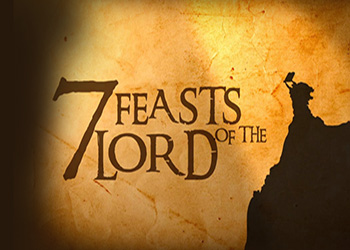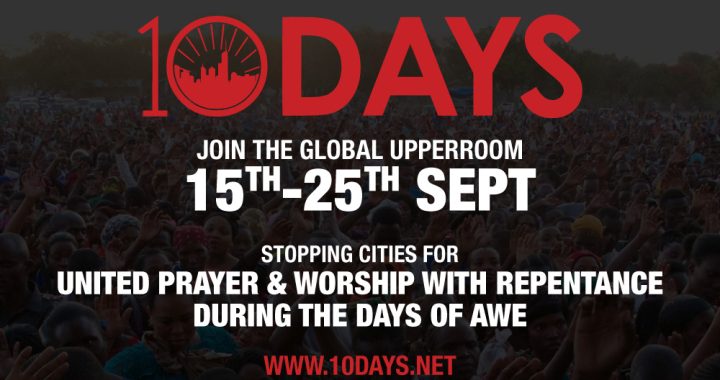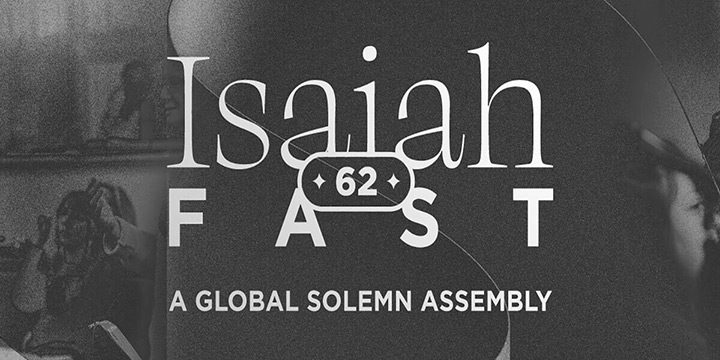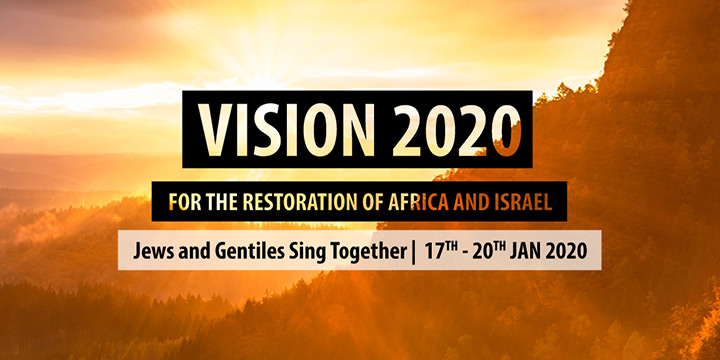THE APPOINTED FEASTS
The Festivals of the Lord found in Leviticus, chapter 23, were given to us by God so His people could understand the coming of the Messiah and the role that the Messiah would play in redeeming and restoring both man and the earth back to God following the fall of Man in the Garden of Eden.
| HEBREW NAME | ENGLISH NAME | TIME OF OBSERVANCE |
| 1. Pesach | Passover | Nisan 14 |
| 2. Hag HaMatzah | Feast of Unleavened Bread | Nisan 15-21 |
| 3. Bikkurim | Feast of First Fruits | The morrow after the Sabbath during Hag Hamatzah |
| 4. Shavuot | Feast of Weeks/Pentecost | 50 days from the Feast of First Fruits |
| 5. Yom Teruah (Rosh HaShanah) | Feast of Trumpets | Tishrei 1 |
| 6. Yom Kippur | Tishrei 10 | |
| 7. Sukkot | Tishrei 15-21 |
The Festivals are divided into two major portions, depending upon whether they occur in the spring or the fall. The Spring Festivals teach about the First Coming of the Messiah, and the Fall Festivals teach about the Second Coming of the Messiah. During the course of the year, the rains come in Israel at two primary times – the spring and the fall. In Hosea 6:3 we read- “…His going forth is established as the morning; He will come to us like the rain, like the latter and former rain to the earth.” The “latter and former rain” in this passage is commonly interpreted and understood to be the coming of the Holy Spirit.
The “former and latter” rain also refers to the First and Second Coming of the Messiah. The Hebrew word for the former rain, found also in Joel 2:23, is ‘moreh’, which means “teacher”. Jesus, the teacher, was sent by God to the earth to faithfully teach us righteousness, just as God faithfully sends us the rain. (Isaiah 55:10-11)
The harvest (believers in Christ) is the product that the rain (Jesus) produces.
The Apostle Paul, in Colossians 2:16-17 refers to the Feasts as a
“shadow of things to come.” The first four Feasts or Festivals, which are Passover, Unleavened Bread, First Fruits, and Pentecost, primarily teach about the significant events in the First Coming of the Messiah and why these events were an important part of God’s redemption of man.
The last three Feasts, which are the Feast of Trumpets (Yom Teruah) also known as Rosh HaShanah, the Day of Atonement (Yom Kippur), and the Feast of Tabernacles or Booths (Sukkot), give us a fascinating insight concerning important events that surround the Second Coming of the Messiah. God gave the Festivals to teach about the death, burial, and resurrection of the Messiah, the empowering of the believers by the Holy Spirit, the resurrection of the dead, the coronation of the Messiah, the wedding of the Messiah (which we have already outlined in a previous study, but will include portions here as well), the Millennium and much more.
The Bible also provides some powerful reasons for studying and
understanding the Seven Festivals of the Messiah:
- The Feasts are in the Bible, and the entire Bible is inspired by God. (2 Timothy 3:16-17)
- The Feasts are a shadow of things to come that teach us about the
Messiah.(Colossians2:16-17,Hebrews10:1. - God gave the Feasts so we could learn and understand God’s plan of
redemption for the world and our personal relationship to Him.
(Romans15:4)
THE BIBLICAL CALENDAR AND THEIR MONTH OF THE YEAR
| NAMES OF MONTH | OUR MONTH | MONTH OF CIVIL YEAR | MONTH OF SACRED YEAR |
| Tishrei | September | 1st | 7th |
| Cheshvan | October | 2nd | 8th |
| Kislev | November | 3rd | 9th |
| Tevet | December | 4th | 10th |
| Shevat | January | 5th | 11th |
| Adar | February | 6th | 12th |
| Nisan (Aviv) | March | 7th | 1st |
| Iyar | April | 8th | 2nd |
| Sivan | May | 9th | 3rd |
| Tammuz | June | 10th | 4th |
| Av | July | 11th | 5th |
| Elul | August | 12th | 6th |
To fully understand the Feasts being appointed times given by God, it is important to understand the Biblical Calendar that God gave to us.
There are two primary calendars in the Bible. The first one is called the Civil Calendar and is used from Genesis 1:1 to Exodus 12. The first month in the Civil Calendar is Tishrei. Rosh HaShanah, or the Jewish New Year, the first day in the Civil Calendar, is the beginning of the New Year. The second calendar in the Bible is the Religious Calendar. The Religious Calendar is used from Exodus 12 to Revelation 22.
God established the Religious Calendar in Exodus 12:2- “This month shall be your beginning of months; it shall be the first month of the year to you.” The month that God was referring to was the month, which is called Nisan. Prior to God establishing the month of Nisan as the first month in the Religious Calendar, Nisan was the seventh month in the Civil Calendar. God gave the Religious Calendar so that we could understand that these Feasts, which He gave and which are His appointed times and fore shadow important events in redemption, would happen on the days He ordained on the Religious Calendar. These important days on the Religious Calendar are the same days that He gave as Festivals in Leviticus, chapter 23.
HISTORICAL APPLICATION OF THE FEASTS
| FEAST | HISTORICAL ASPECT |
| Passover | Israel’s deliverance out of Egyptian bondage |
| Unleavened Bread | The going out of Egypt |
| First Fruits | Crossing the Red Sea |
| Pentecost | Giving the 10 Commandments at Mount Sinai |
| Rosh HaShanah (Feast of Trumpets) | Blowing the ‘Shofar’ (trumpet) The Jewish New Year |
| Day of Atonement | High Priest entered the Holy of Holies Cleansing of the people’s sins |
| Tabernacle | Entering the Promised Land/Great Rejoicing |
MESSIANIC APPLICATION OF THE FEASTS
| FEAST | MESSIANIC FULFILLMENT |
| Passover | Death of Christ on the cross (tree) |
| Unleavened Bread | The burial of Jesus |
| First Fruits | The resurrection of Jesus |
| Pentecost | The outpouring of the Holy Spirit (Acts 2) |
| Rosh HaShanah (Feast of Trumpets) | The resurrection of the dead in Christ/Rapture of believers |
| Day of Atonement | The day of Christ’s second coming |
| Tabernacles | The Messianic Era/Millennial Reign |
SPIRITUAL APPLICATION OF THE FEASTS
| FEAST | SPIRITUAL APPLICATION |
| Passover | Repent and trust by faith in the shed blood of Jesus |
| Unleavened Bread | Sanctification and separation from evil represented by water immersion (baptism) |
| First Fruits | Walking in newness of life |
| Pentecost | Immersion (baptism) in the Holy Spirit and faith in God |
| Rosh HaShanah | Hear the calling (shofar (trumpet)) of (Feast of Trumpets) God for our lives |
| Day of Atonement | Yielding ourselves to God so that we may live (face to face) in His Presence |
| Tabernacles | A daily rest in the Messiah and having the rest of His Kingdom in our hearts |
SIGNIFICANCE IN BRIEF
| FEAST | SPIRITUAL APPLICATION |
| Passover | Reminds us that God is the forgiver of sin who grants us eternal life in His Kingdom through the sacrifice of Jesus Christ, our Passover |
| Unleavened Bread | Depicts putting sin out of our lives |
| First Fruits | Christ, the first fruits risen from the dead, afterward, those who are Christ’s at His Coming |
| Pentecost | Serves to remind us that our Creator still works miracles, empowering us to carry out His work in this world |
| Rosh HaShanah | Looks forward to the return of Jesus Christ (Feast of Trumpets (rapture of the Church), and to the resurrection of the “dead in Christ” -the hope of Christians |
| Day of Atonement | Pictures the loving reconciliation we have with God, made possible through Christ’s sacrifice. It also shows the remarkable truth that Satan will eventually be removed so that humanity can and at last attain reconciliation with God on a universal basis |
| Tabernacles | Represents the Millennium, the reign of Christ on Earth for 1,000 years of true happiness and Utopia |
OVERVIEW OF THE SPRING FESTIVALS
The four Spring Festivals are Passover, Unleavened Bread, First Fruits, and the Feast of Weeks or Pentecost.
These four Spring Festivals are joined together as an interrelated unit. The Feast of Weeks is considered the conclusion to Passover. The season of Passover is not considered totally over until Pentecost is completed.
Passover begins in Egypt (a type of the world), where the children of
Israel had become slaves. In the days of Joseph, there was a famine in Israel and the children of Israel went down to Egypt and gave themselves to ruler ship under Pharaoh. Because of this, Pharaoh had legal ownership over the people. This ownership could be broken only by the death of Pharaoh, thus freeing the children of Israel to go to the Promised Land. When Pharaoh died, his ruler ship over the children of Israel was legally broken and the people were free to go to the Promised Land.
Spiritually speaking, Pharaoh is a type of Satan. Until you accept
Jesus into your life, Satan has legal ownership over you. By the death of Jesus, the legal ownership that Satan has over our lives is broken and we are free to enter into the spiritual promised land of God and receive all the promises that He has promised to us.
From the crossing of the Red Sea (Nisan 17) to the day Moses met God on Mount Sinai were 47 days. For 47 days the children of Israel traveled through the wilderness before they came to Mount Sinai on the third day of the third month. (Exodus 19:1) God instructed the people through Moses to sanctify themselves before He visited them three days later on Mount Sinai, which would be the sixth day of the third month.(Exodus19:10-11) This day would be the 50th day following the crossing of the Red Sea. It came to be known as the revelation of God at Mount Sinai. This day, being the 50th day from the crossing of the Red Sea on Nisan 17 would be the Feast of Weeks or Pentecost.
From the Exodus story, we can see that the Lamb was slain on the 14th of Nisan, the day of Passover. On the 15th of Nisan, the day of Unleavened Bread, the people left Egypt. On the 17th of Nisan the children of Israel crossed the Red Sea, and 50 days later on the Feast of Weeks or Pentecost, God gave Moses the Commandments.
In the studies of the Feasts we see how Jesus died on Passover (Nisan 14), was in the sepulcher on the day of Unleavened Bread (Nisan 15), and was resurrected on the day of First Fruits (Nisan 17), and the Holy Spirit empowered the believers 50 days following Jesus resurrection on the day of Pentecost. We also learn what these Feasts mean to the believer and how they relate to our personal relationship with God.
OVERVIEW OF THE FALL FESTIVALS
The Fall Festival season begins with a 40-day period called, in Hebrew, ‘Teshuvah’, which means “to repent or return”. This 40-day period begins in the sixth month (Elul) of the Religious Calendar, and concludes on the 10th day of the 7th month, which is Yom Kippur, the Day of Atonement. Each morning in the synagogue following the morning prayers, a trumpet (shofar) is blown (except) on Sabbaths and the day preceding Rosh HaShanah, the Feast of Trumpets). The Biblical name for Rosh HaShanah is Yom Terah, which means “the day of the awakening blast”. We call it the Feast of Trumpets. God gave us this day to teach us about the resurrection of the dead, the coronation of the Messiah, the wedding of the Messiah, and more. This day is both the Jewish New Year and the beginning of a period of soul searching known as the High Holy Days, culminating on Yom Kippur. Therefore, the last 10 days of the 40 day period of Teshuvah or repentance, is also called the high Holy Days.
The 1st and 2nd days of the 10 High Holy Days (Tishrei 1-10) are collectively known as one day. (Nehemiah 8:1-2, 13) The 7 day period from Tishrei 3 through Tishrei 9 is called the Days of Awe or the
Awesome Days. God gave these special days on His calendar to teach us about the future tribulation period on earth. These seven days will correspond to the seven years of the tribulation, known in Hebrew as the “birth pangs of the Messiah”.
Yom Kippur, the Day of Atonement is observed on the 10th day of the seventh month. (Leviticus 23:26-32) Since Rosh HaShanah teaches us about the resurrection of the dead, the coronation of the Messiah and the wedding of the Messiah, and the Days of Awe teach us about the tribulation, Yom Kippur teaches us about the literal 2nd Coming of the Messiah when He will set His foot down on the Mount of Olives. (Zechariah 14:4)
The Feast of Tabernacles is observed on the 15th day of the seventh month of Tishrei to the 21st (15-21). This Festival teaches us the joy of the Messianic Kingdom or the Millennium.
There are four important aspects to remember when dealing with each of the seven Great Festivals of the Lord:
- All of the Festivals are, at the same time, both historical and
prophetic. - All of the Festivals teach about the Messiah, or Jesus.
- All of the Festivals are agricultural in context.
- All of the Festivals teach about your personal relationship with God and how you are to walk with Him as you grow in the knowledge of Him, from being a baby believer to a mature believer.
THE MEANING OF THE WORD “FEAST” IN THE BIBLE
There are two important Hebrew words that appear in Leviticus, chapter 23, and each word is translated as ‘feast’ in English. In verse 2, the word for feast is the Hebrew word ‘mo’ed’- “Speak unto the children of Israel, and say unto them, concerning the feasts (mo’ed) of the Lord…”
The word ‘mo’ed’ means an appointment, a fixed time or season, a cycle or year, an assembly, an appointed time, a set time or exact time. By understanding the Hebrew meaning of the English word “feast”, we can see that God is telling us that He is ordaining a “set time or exact time or an appointed time” when He has an appointment with humanity to fulfill certain events in the redemption. Jesus came to earth at the exact time ordained by God as Paul wrote in Gelatins 4:4, “But when the fullness of the time came, God sent forth his son, made of a woman, made under law.” And God has an exact time or set appointment when, in the future, He will judge the world as it is written in Acts 17:31.
In verse 6 is another Hebrew word translated as “feast”- “And on the 15th day of the same month is the feast (chag) of unleavened bread…” The Hebrew word ‘chag’, which means a “festival”, is derived from the Hebrew root word ‘chagag’, which means to move in a circle, to march in a sacred procession, to celebrate, dance, to hold a solemn feast or holiday. God gave the Festivals as cycles to be observed yearly so that, by doing them, we can understand God’s redemptive plan for the world, the role that the Messiah would play in that redemption, and our personal relationship to God concerning how we grow from a baby Bible believer to a mature Bible believer.
THREE TIMES A YEAR THEY WERE TO ASSEMBLE
There are a total of seven Feasts (number seven is the divine number for perfection or completeness in the Bible). God divided the seven Festivals into three major Festival seasons. The Feast of Passover, Unleavened Bread, and First Fruits are in the Hebrew month of Nisan, which is the first month of God’s Religious Calendar in the spring of the year.
The Feast of Weeks, or Pentecost, is observed in the third month, which is the Hebrew month of Sivan. The Feasts of Trumpets, Atonement, and Tabernacles are observed in the seventh month of Tishrei, which is in the fall of the year. Three is the number of complete and perfect testimony and witness. (2 Corinthians 13:1, 1 John 5:8) So the Feasts are a witness to God’s divine plan and the role of Messiah fulfilling that plan.
UNDERSTANDING THE FEASTS
In Leviticus 23:2 it is written, “…the feasts of the Lord, which ye shall proclaim to be holy convocations…” The Hebrew term translated as convocation in Leviticus 23:2, 4 is ‘miqra’, which means “a rehearsal”. God gave the Festivals to be yearly “rehearsals” of the future events in the redemption. Because God gave the “rehearsals” to teach us about the major events in the redemption, if we want to understand those events, then we need to understand what God was teaching us by these rehearsals. We will do this as we get to study these Feasts themselves.





thanks. may God bless IFU
Thank you so much but I wander why you mix things? For instance when you speaks to to Christ you were supposed to use Messiah. For simple reason: the word Christ got its roots in greco-latin language not Hebrew knowing that the bible has messiah in English but you prefer Christ originating from greco-latin system. This system has caused the world to turn their backs from the true Go’s plan to a machinated system which opposes the feasts (appointed times) like changing the Sabbaths of God and their normal course. Imagine in most Christianity Saturday corresponding to the seventh day, christians believers take that day as the sixth day of the week when they know we’ll that it is wrong. And God Yahweh, has never accepted the wrong to oartain with Him.
In the same way “Jesus” is not known by the angel who was sent to Mariam (Mary) announcing her the holy conception of the messiah. Jesus name was invented in 1650 with the invention of the letter J. If is the case why favor the neo appellation instead of keeping Yahweh’s chosen name? If,in the other hand we believe in the heavenly name why people prefer the translative earthen name? Does this name also give the true salvation?
For me I believe that Christianity was promoted to counterfeit the plan of Yahweh in a way of most people who desire to come to the messiah may just believe in a someone like Him but not the real one. Look yourself, the birth of the messiah prophesied in the book of revelation 12 was left unexploited at the point of letting everyone know the exact date of the messiah. Do you think that they failed to make a deep research about the exact date? No! It is because it will bring differences with another given date of the Christ (may be not messiah) taken to 25th December.
In same way messiah ascended in the heaven, we shall also ascend (rapture). He died and we died! He raised from the death and we shall also raise from the death (revellation 21). His birth is meaningful because Herode was aware of who would be born. Isayah 7:14 prophesies that God Himself will live among His people. That day is important! Lev 23 speaks about the day of trumpet on a seventh month (Tishrei) but Israelites take this day as the first day of the new civil year (Rosh HaShannah), why! Ask yourself and get an answer!
Finally, I want to welcome whoever wants to go deeper in this commentary article to make his or her resurch to find out the true salvation revealed in the heavenly given name of YahuShua.